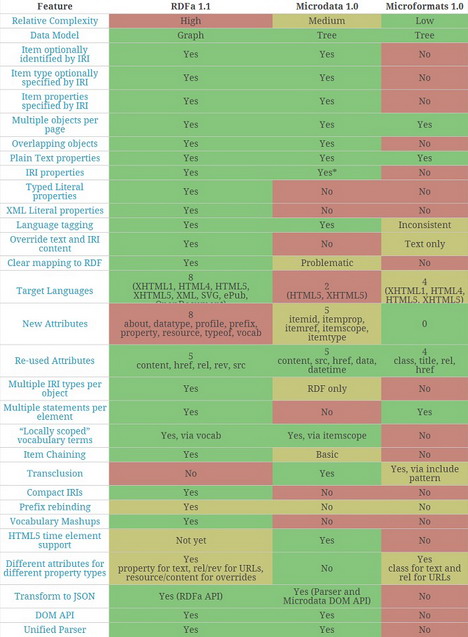How Structured Data Can Increase Your SERP Ranking
Structured data of a website are used by the search engines for a long time to show a rich snippet on SERP (Search Engine Result Page). Most of the webmasters find implementing structured data complex and time consuming at first sight, but applying it can definitely improve the website performance and rankings.
But prior to start exploring how structured data can help improving your site’s ranking, you need to know the meaning of structured data. I have divided its definition in two parts:
Technical Definition
Structured data is also known as semantic markup which is a set of predefined rules that describe the type of data on a webpage and the relation between them. Structured data was invented so that search engines can better read and understand the contextual meaning of your webpage’s content.
General Definition
Structured data is something that delivers a webpage’s information in a descriptive and a meaningful manner for user’s convenience. Such as a rich snippet with a website listing on Google search.
Structured data are defined in four types:
- Microdata
- Microformats
- RDFa
- Schema.org
Microformats
Microformat is a method to add Meta information and some other attributes by reusing existing HTML code. Although, this existing HTML code doesn’t actually tell what a web content means.
Microdata
Microdata are HTML5 attributes that adds predefined semantics into a web document. In other words microdata puts a specific label to your site’s content so that search agents can understand the circumstantial meaning of information you are providing. For example: Event information, product ratings, reviews etc.
RDFa
RDFa or Resource Description Framework Attributes add some attributes to HTML and XML documents to add rich Meta data.
Traditionally, Google, Bing & Yahoo followed three distinct structured data markups RDFa, Microformats, Microdata but later GYB (Google, Yahoo and Bing) made a decision to follow just one structure and that was Schema.org.
However, Google is currently supporting above three standards for the sake of old websites that are still using either of Microformats, Microdata and RDFa. But it is recommended to switch to schema standard because it is accepted across all three major search engines.
What is Schema.org Structured Data (Often Called Schema)
Schema.org is a type of Microdata launched by Google, Yahoo & Bing on 2 June 2011. It enables search engine crawler to parse site’s information more efficiently to serve better search results according to a user’s query.
Schema.org markup supports multiple languages, hence websites that serve the content in a language other than English can also implement schema.
Does Schema Improve a Website’s Rankings?
Schema doesn’t affect a website’s ranking directly, instead it improves the way your website listing appears at SERP. The enriched listing of your website looks appealing to users and more people tend to click on your web URL.
Here is an example of improved website listing that used schema:
Now you may think, how this improved site listing relates to website rankings. Evidently, it does. Let’s see how:
Schema Improves the User Experience
You have seen that a website using schema markup gets a good looking search listing at SERP. This good looking listing is very attractive to users and helps them, find the right information. Compare the two website listings below and determine which result seems helpful to you.
If you look closely, you will find out that first the web listing looks more meaningful because it is using schema structured data. You can see that, the listing has ratings, votes and price mentioned under the URL that makes it easier for a user to understand about the product (Instagram clone) and its features. The second listing lacks these attributes and fails to deliver right information to the users.
Schema Increases the Click-Through Rate
Schema markup doesn’t just make a web snippet rich. It also increases the CTR (click through rate) for your website. More meaningful snippet compels a user click on your web listing as you show important feature of your services or product.
Schema Engages More Users to Your Website
Providing beneficial information like price, reviews, availability of a product in advance helps users decide whether they should click on your link or not. It can greatly improve the user engagement and quality of visitors as you help them get the valuable data without even clicking.
It also reduces the bounce rate and increases the time a user spend on your website. This sends a positive signal to search engines which help in improving your website ranks.
Schema Integration Improves Your Reputation
This factor is a bit off topic which doesn’t directly related to better ranks, but it certainly related to your website’s reputation. As mentioned before, a few websites are using the schema at present, in this scenario you may build a good reputation for your website by the inclusion of structured data and taking it to the advanced level.
After summing up above four factors together, you will see the positive results of using schema. A study published on Search Engine Watch stated that websites that incorporated schema ranked four positions higher than those which do not.
The case study depicted the analysis of thousands of websites and keywords and found out that websites with schema integration ranked on 21st position on average, while those without the addition of schema ranked on the 25th position in Google search.
Apart from case studies and proven search results, industry experts also suggest implementing schema into websites. At first you may find it hard to apply, but once you have a good understanding of the schema you are good to go. There are many different schema generator tools and Schema creator WordPress plugins available too, which can help you incorporate structured data into different web pages.
However, it requires moderate expertise of HTML and precautions while applying structured data. If you do not add appropriate schema attribute into a webpage you might lose the benefit of higher visibility, CTR and more traffic on your website.
Conclusion
The conclusion is Structured data is co-related to the ranking of your website on SERP. Adding schema doesn’t affect the website’s ranking directly, but improves the CTR, visibility and quality traffic, which improves user behavior thus positively affects your site ranking. So what are you waiting for, get up take advantage of structured data.
Tags: google pagerank, search engine, user experience, web development resources














































